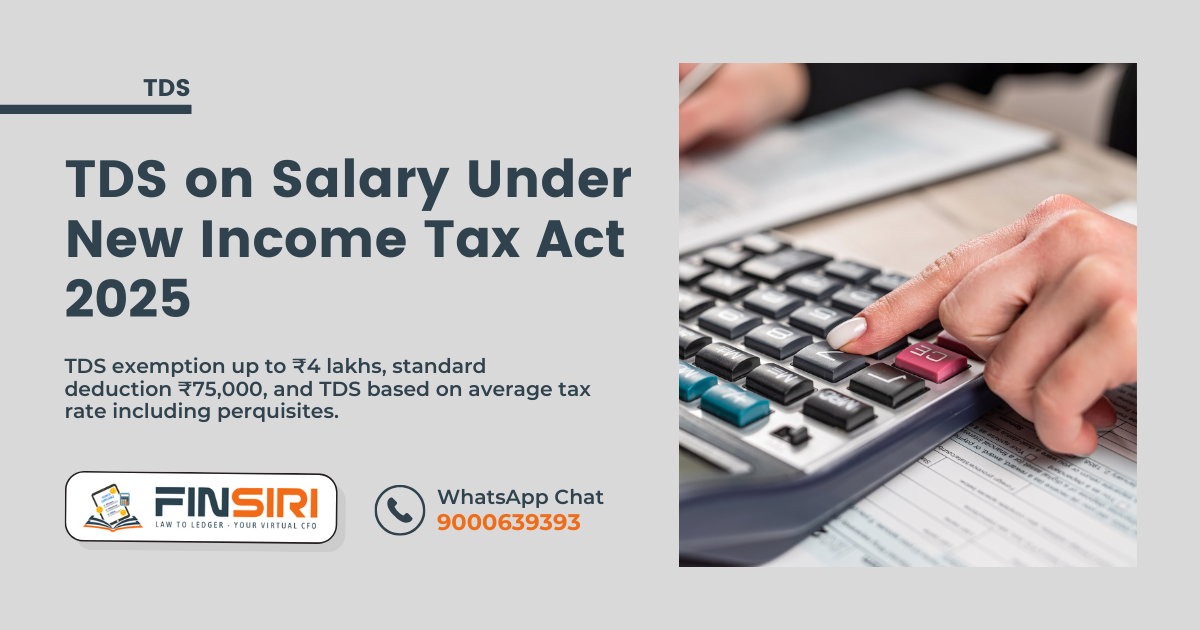Our Services
FINSIRI Global Associates LLP
with a vision to provide assured quality services consistently with a value of professional commitments, Quality, Trust and Integrity.

Virtual CFO Services - FINSIRI
Trusted Finance & Compliance Partners
BEST QUALITY

TRUST

INTEGRITY



Advanced AI
Transforming Finance with Artificial Intelligence
FinSiri Global Associates is your trusted partner for Virtual CFO, Business Compliance, Taxation, and Corporate Governance solutions. With expertise in finance and regulatory frameworks, we combine human intelligence with cutting-edge AI tools to deliver accurate, timely, and cost-effective strategies. Our AI-driven approach simplifies compliance, enhances decision-making, and ensures sustainable business growth for startups, SMEs, and enterprises.

About Us
Compliance. Clarity. Confidence.
FINSIRI Global Associates LLP is a premier name in financial advisory, compliance management, and strategic business consulting, offering integrated, cutting-edge solutions to address the diverse regulatory, tax, and financial needs of businesses across all sectors.
Our Mission:
To deliver comprehensive, reliable, and client-centric financial, legal, and compliance solutions that empower businesses throughout every phase of their growth journey.

Our Services

FINSIRI services are designed to simplify finance, compliance, and business growth. We offer expert-led Virtual CFO Solutions, covering accounting, taxation, payroll, GST, ROC filings, and strategic advisory. Whether you’re a startup, SME, or global entity, we ensure cost-effective and compliant financial management tailored to your business goals.
- Business Setup
- Accounting
- Virtual VFO Services
- Direct & Indirect Taxes

Why Select FINSIRI ?
Our team consists of seasoned finance professionals with extensive experience in taxation, payroll, compliance, and Virtual CFO services. We bring strategic insight and technical precision to every engagement.
From GST and Income Tax to ROC, PF, and ESI, we ensure your business stays 100% compliant with evolving legal and regulatory frameworks—helping you avoid penalties and stay ahead.
We don’t believe in one-size-fits-all. FINSIRI provides customized financial planning, reporting, and advisory services that align with your unique business model and growth vision.
Our foundation is built on transparency, ethical practices, and client-first values. When you work with FINSIRI, you’re choosing a partner you can rely on for honest advice and long-term support.


Expertise You Can Trust
Despite being thousands of miles away in the US, we seamlessly manage our Indian business compliance with FINSIRI’s end-to-end support in accounting, payroll, taxation, and others along with high-impact Virtual CFO services such as treasury management, investment advisory, and strategic financial planning. Their expertise, transparency, and approachable nature allow us to focus on growth with complete trust that our compliance and finances are in expert hands.
Exceptional Dedication & Commitment
We extend our sincerest gratitude for your exceptional dedication and commitment. The successful implementation of the global payroll, payments, Virtual F&A services across our branches in India, United States and Dubai stands as a testament to your remarkable efforts. Despite the geographical distances, your invaluable contributions have bridged the gap and ensured the seamless operation of our business. Your firm’s expertise and support have been instrumental in this achievement. Thank you for going above and beyond, and for being an indispensable part of our success story.
Exceptional Support and Expertise
I’ve had a truly outstanding experience working with Satish & Sudha from FinSiri virtual CFO services. Their professionalism and commitment to client success are second to none. Whenever we faced challenges, including a complex situation this year with my wife’s ITR filing, Sudha and the team quickly provided a fantastic, fully compliant solution that met our needs perfectly. What sets them apart is their unwavering focus on client interests, they consistently go the extra mile and have become an integral extension of our team. Highly recommend FinSiri for anyone seeking reliable, client-centric financial solutions.



